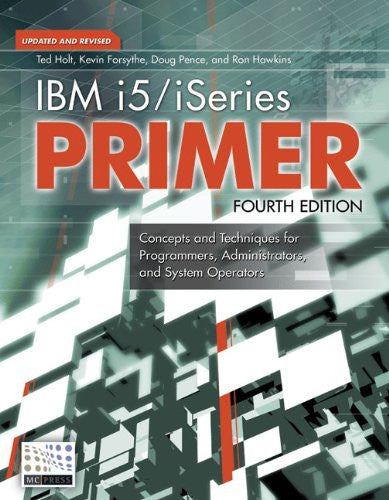I’ve always felt a sense of loyalty to my employers. After all, the world doesn’t owe me a living, so anybody who gives me a job is doing me a favor. I’ve always tried to give an honest day’s work in exchange for a day’s wages. When possible, I’ve helped my current employer find my replacement, and even trained my replacement, before moving on to another job.
So I’ve never been impressed with people who change jobs frequently. I’ve known people who took a job, received technical training, and soon moved to a higher-paying job. This sort of thing bothers me. I would not like to invest thousands of dollars in a person, only to see my investment turn in a resignation soon afterwards. I would be wary of hiring someone with a history of job-hopping.
Of course, the other side of the coin is that the employer should be loyal to the employee. I’ve seen good people, with heads full of knowledge, forced into early retirement and replaced by green-as-grass recent college graduates who were willing to work for less money. I know of people who have been burnt out and thrown away. Businesses aren’t charities, but on the other hand, they aren’t concentration camps either. But I’ve digressed, and that’s a subject for another essay.
Loyalty to an employer is a good thing. It is in the interest of the employee to be loyal to the employer. However, the employer’s greatest loyalty is to the stockholder. Likewise, the employee’s greatest loyalty is to Number One. This means that there are times when an employee should resign, no matter what.
If you, the management of an organization, are not taking steps to ensure that your organization is not adversely affected by Year 2000 problems, you should not expect employees to remain on your payroll. Try to see it from the employee’s point of view.
• Do you like to be ignored? Many programmers and IS managers are trying in vain to get management to spend the money necessary to keep the computers going when 2000 begins to populate the date fields of the database. Some managers are responding that someone they’ve talked to has assured them that the Y2K bug is just a hoax. Others agree that it’s a problem, but continue to put it off, telling IS to devote time and effort to what management considers to be hotter fires. Such managers are telling IS people that
management better understands the Y2K issue than the programmers who work with the code. As we say in Mississippi, “That dog won’t hunt.”
• Do you like to work without proper tools? Some managers admit the Y2K problem exists but refuse to spend money on software that will be used only once. “Fix the problem, but don’t spend any money,” they say. If you won’t pay for conversion software, at least buy a change management system and/or a good documentation package. These types of software are not just for Y2K issues. They’re applicable to everyday life in your IS shop, and they can make the working environment much more pleasant (or at least less stressful) for IS personnel.
• Can you afford to miss a paycheck? Perhaps you can, but many employees can’t. Employees typically make a good deal less money than corporate or local management. Most employees do not benefit as greatly from profit-sharing, stock-option, and retirement plans. Many employees in modern America live from paycheck to paycheck. If your establishment shuts down for a few weeks or goes out of business, your people are going to hurt. They can’t afford to take that risk.
• Can you pass up the opportunity to make a lot more money? I read on the World Wide Web about a programmer who applied for a job to work on Y2K problems and planned to ask $75,000 a year in salary. He never had to discuss money. The employer offered him $110,000 without asking him how much he wanted. Y2K consultants are getting scarce, and many programmers are considering going into business for themselves. A programmer may leave your organization anyway, even if you are ready for the Year
2000. However, if you are ready, the programmer may very well decide to ride out the end of 1999 gainfully employed by a stable business, rather than face the uncertainty of being self-employed. If you’re not ready, those high-dollar offers are going to look that much more attractive.
You need to get ready for the time when dates of 2000 start hitting your database. Here are some things you should address. (It’s not an exhaustive list.)
• Treat the Y2K issue as a companywide concern, not an IS problem.
• Make sure IS has the resources needed to bring code into compliance.
• Work with employees to develop contingency plans, so that you can continue to operate if the computer is down.
• Work with trading partners to make sure supply chains are not broken in the event of computer failure.
• Communicate with employees. Let them know what you’re doing to protect their It’s easy to deride employees who leave a business during a time of trouble, comparing them to rats abandoning a sinking ship, but good managers understand that employees do not have the luxury of being loyal to a failing business. Don’t let the coming of the Year 2000 cause an exodus of your employees, especially of your IS people.
jobs.

















 Business users want new applications now. Market and regulatory pressures require faster application updates and delivery into production. Your IBM i developers may be approaching retirement, and you see no sure way to fill their positions with experienced developers. In addition, you may be caught between maintaining your existing applications and the uncertainty of moving to something new.
Business users want new applications now. Market and regulatory pressures require faster application updates and delivery into production. Your IBM i developers may be approaching retirement, and you see no sure way to fill their positions with experienced developers. In addition, you may be caught between maintaining your existing applications and the uncertainty of moving to something new. IT managers hoping to find new IBM i talent are discovering that the pool of experienced RPG programmers and operators or administrators with intimate knowledge of the operating system and the applications that run on it is small. This begs the question: How will you manage the platform that supports such a big part of your business? This guide offers strategies and software suggestions to help you plan IT staffing and resources and smooth the transition after your AS/400 talent retires. Read on to learn:
IT managers hoping to find new IBM i talent are discovering that the pool of experienced RPG programmers and operators or administrators with intimate knowledge of the operating system and the applications that run on it is small. This begs the question: How will you manage the platform that supports such a big part of your business? This guide offers strategies and software suggestions to help you plan IT staffing and resources and smooth the transition after your AS/400 talent retires. Read on to learn:
LATEST COMMENTS
MC Press Online